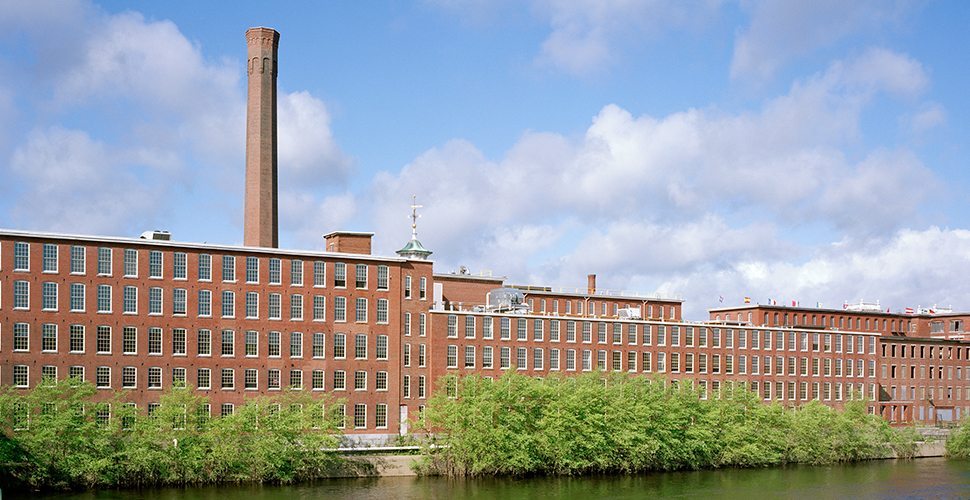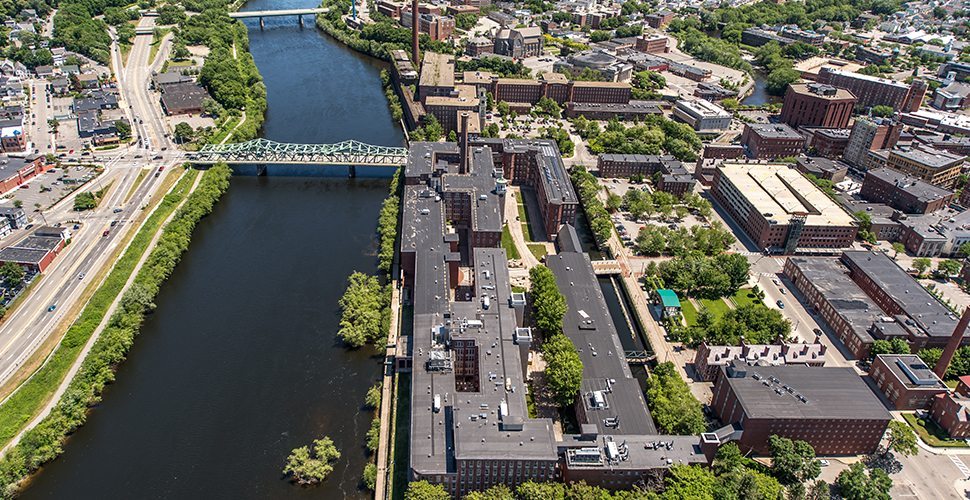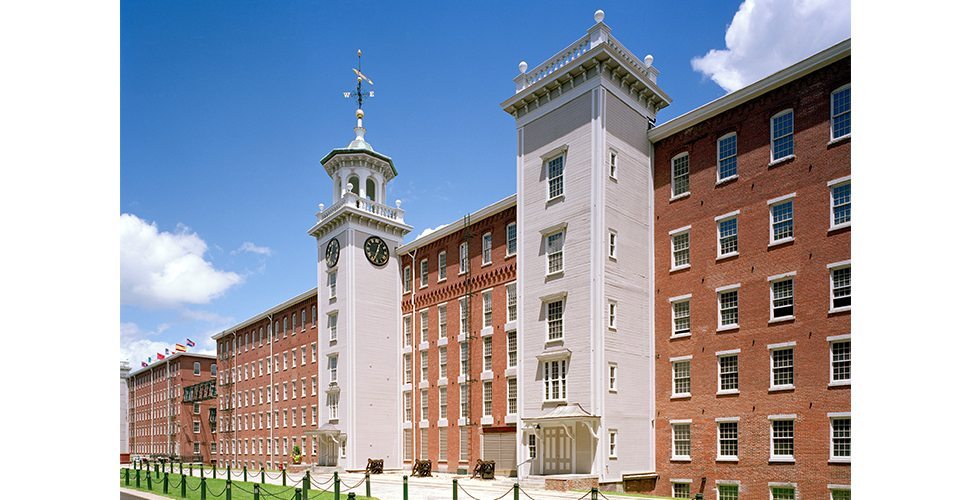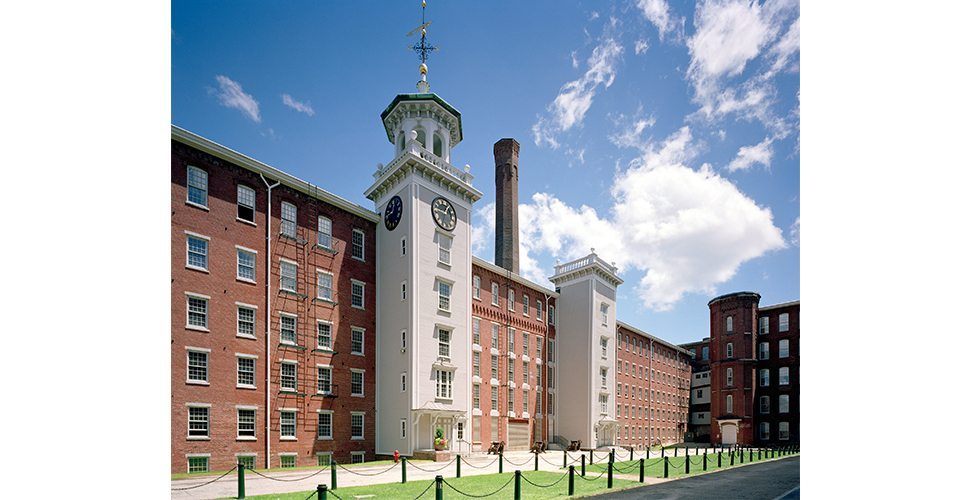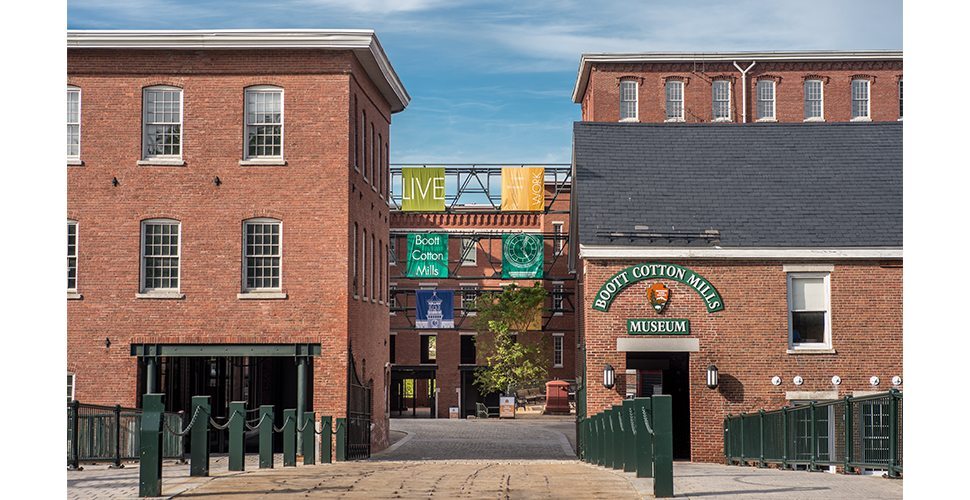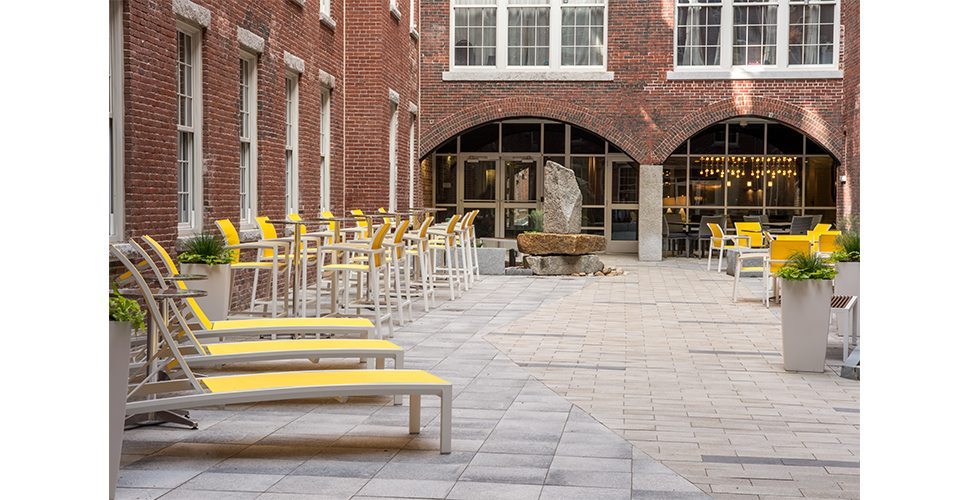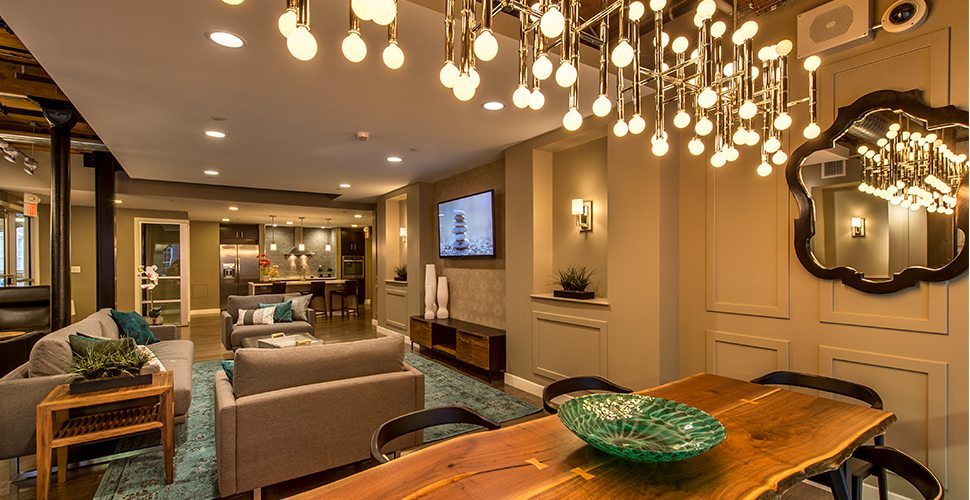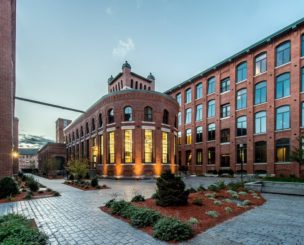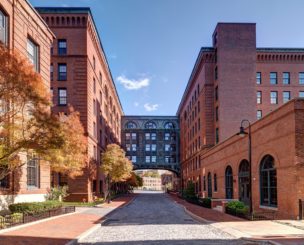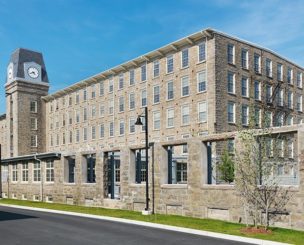Architecture
- Featured Projects
- Type
The Apartments at Boott Mills
Lowell, MA
Regarded as one of the most architecturally significant millyards in the U.S., the original Boott Mills complex is the oldest surviving cotton textile millyard in the country. Listed on the National Register of Historic Places, the mill is located two blocks from downtown Lowell at the edge of Lowell’s National Historic Park, facing the Merrimack River. Built from the mid-1830s to the early 20th century, the complex incorporated each subsequent generation of technology beginning with the early use of mechanical waterpower, steam power, and eventually electric power. The influence of each stage of technology is readable in the evolving appearance of the complex over time.
Under the firm’s direction, the mill underwent extensive exterior restoration to ensure architectural detailing and historic integrity was retained. The restoration entailed extensive masonry repair, historically accurate replacement of windows damaged by an earlier gas explosion as well as the reconstruction of the clock tower and cupola that involved reinforcement of the foundations to save both towers from collapse. A lightning strike damaged the mill’s 200 foot smoke stack which required extensive repair and archival research to guide the reproduction of its historic brick patterns. The adaptive reuse of the Boott Mills complex realizes the completion of a major piece of urban planning for the City of Lowell, preserves a significant artifact of American industrial history, and adds both housing and mixed use to a rejuvenated urban waterfront.
- SERVICE
- TYPE
Commercial
Historic Preservation | Restoration + Adaptive Reuse
Hospitality + Mixed-Use
Multifamily
- CLIENT
WinnDevelopment
- SIZE
810,000 sf
- STATUS
Completed in 2013
- AWARDS
Sara R. Delano Preservation Award
New Bedford Waterfront Historic Area LeaguePreservation Award
Massachusetts Historical CommissionJ. Timothy Anderson Award | Excellence in Historic Rehabilitation
National Housing and Rental Association
Related Projects
- SERVICE

